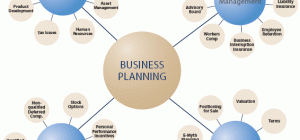 There are a lot of reasons why there is increasing incidence of fatigue at work. Some of these reasons include:
There are a lot of reasons why there is increasing incidence of fatigue at work. Some of these reasons include:
- Shifts at different times of the day which may go against the normal or natural body clock,
- Increasing pressure to do well at work which makes an individual take on more than he can handle,
- Rise in fear of being laid off at work and therefore people do extra work to be in the good books of their bosses,
- A generally unhealthy lifestyle that increases an individual's propensity to be under immense stress
Some industries or businesses may find a higher incidence of worker fatigue than others. These businesses may be:
- Financial and stock trading
- Fleet management,
- Medical sectors and
- Armed forces
If one were to talk about work pressures and the fact that every day work can also result in huge levels of fatigue, then it does become relevant to talk about the importance of fatigue management at work.
Why is it important?
Fatigue has been defined in many ways but is characterized by:
- Low levels of mental alertness,
- Drop in physical performance,
- Its ability to affect emotional well-being and
- Cause disruption and impairment of reflexes, psychological health and
- Result in stress which cannot be handled easily.
There are 2 ramifications to fatigue management. One, is the fact that a tired employee will no longer be an asset to an organization or workplace. Two, it is the mark of healthy human resources policy for an organization to undertake fatigue management at work.
The benefits of fatigue management at work
There are many different ways in which an organization can conduct various workshops and implement various protocols to control and manage tired employees or fatigue at work.
And when such methods are implemented really well, the benefits of fatigue management can be felt across aspects such as:
- Lowering the rate of accidents and human errors
- Increasing productivity and employee
- Decreasing general maintenance costs with respect to human resources
- Lowering the levels of absenteeism and labor turnover
- Ensuring that employees do not fall prey to normal diseases and problems associated with fatigue. Such problems can range from lifestyle diseases to inordinate levels of stress.
- Helping employees enjoy better personal and even better fitness levels.
- Increasing or improving interpersonal relationships including family life.
- Decreasing the disruptions at work and
- Helping an employee improve his ability to concentrate on the task at hand and contribute to the organization's growth and development
There are plenty of ways in which an organization can invest in effective fatigue management policies. First, there should be an understanding of different kinds of factors that may cause such fatigue. It is also important to identify an employee who is showing signs of high levels of fatigue.
The entire organization can come into play in order to underline the importance of fatigue management at work. The process should really begin with identifying the number of employees who are tired and even assessing the number of accidents or incidents that have been the cause for disruption at work and are a direct result of fatigue.




![Awesome Things You Need in Your Office [According to Officeprinciples.com]](https://lerablog.org/wp-content/plugins/wp-thumbie/timthumb.php?src=http://lerablog.org/wp-content/uploads/2014/10/image1-300x199.jpeg&w=300&h=140&zc=1)



Managing fatigue at work is very important. This being the Month of Safety and all, preventing workplace hazards caused by fatigue is a must.